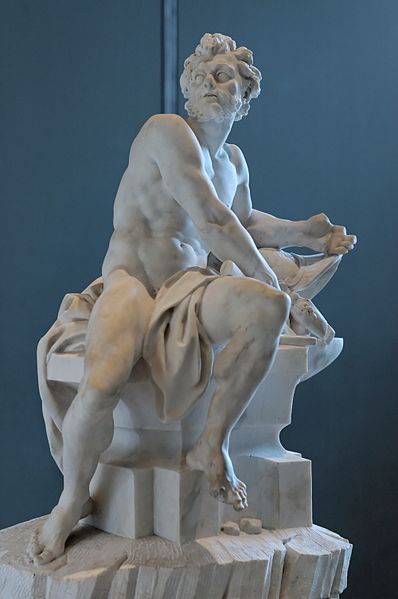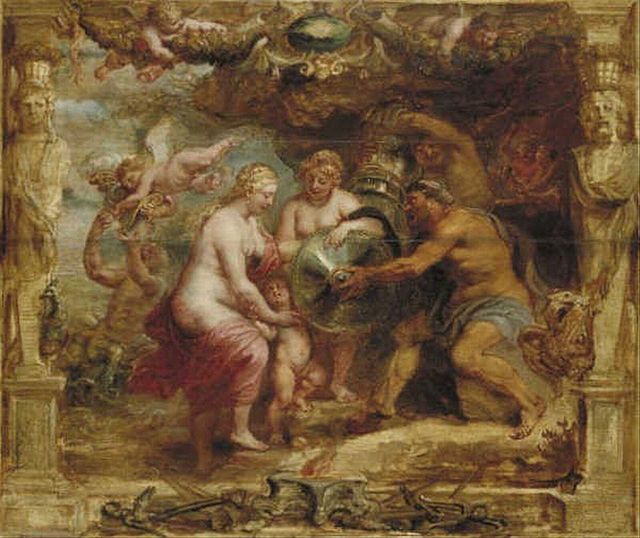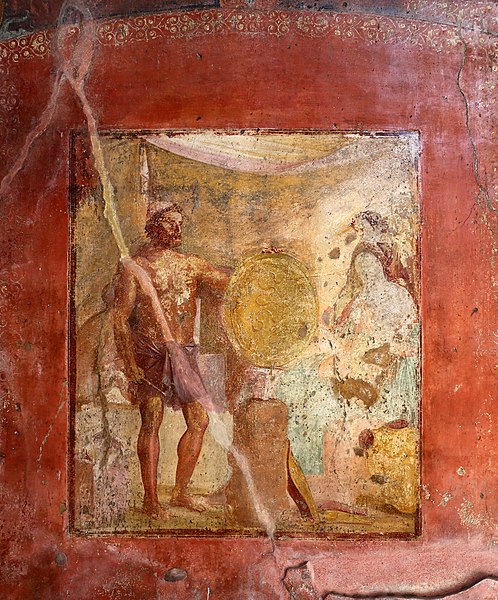Hephaestus is the Greek god of artisans, blacksmiths, carpenters, craftsmen, fire, metallurgy, metalworking, sculpture and volcanoes. Hephaestus's Roman counterpart is Vulcan. In Greek mythology, Hephaestus was either the son of Zeus and Hera or he was Hera's parthenogenous child. He was cast off Mount Olympus by his mother Hera because of his lameness, the result of a congenital impairment; or in another account, by Zeus for protecting Hera from his advances.
Hephaestus at the Forge by Guillaume Coustou the Younger (Louvre)
Vulcan Presenting the Arms of Achilles to Thetis by Peter Paul Rubens.
Thetis Receiving the Weapons of Achilles from Hephaestus by Anthony van Dyck (1630–1632)
The Doric Temple of Hephaestus, Agora of Athens
Vulcan is the god of fire including the fire of volcanoes, deserts, metalworking and the forge in ancient Roman religion and myth. He is often depicted with a blacksmith's hammer. The Vulcanalia was the annual festival held August 23 in his honor. His Greek counterpart is Hephaestus, the god of fire and smithery. In Etruscan religion, he is identified with Sethlans.
Vulcan, wearing an exomis (tunic) and pilos (conical hat), sculpted by Bertel Thorvaldsen
A fresco of Vulcan-Hephaestus in Pompeii
Andrea Mantegna: Parnassus (detail): Vulcan, god of fire (1497)
Punishment of Ixion: in the center is Mercury holding the caduceus and on the right Juno sits on her throne. Behind her Iris stands and gestures. On the left is Vulcanus (blond figure) standing behind the wheel, manning it, with Ixion already tied to it. Nephele sits at Mercury's feet; a Roman fresco from the eastern wall of the triclinium in the House of the Vettii, Pompeii, Fourth Style (60–79 AD).








